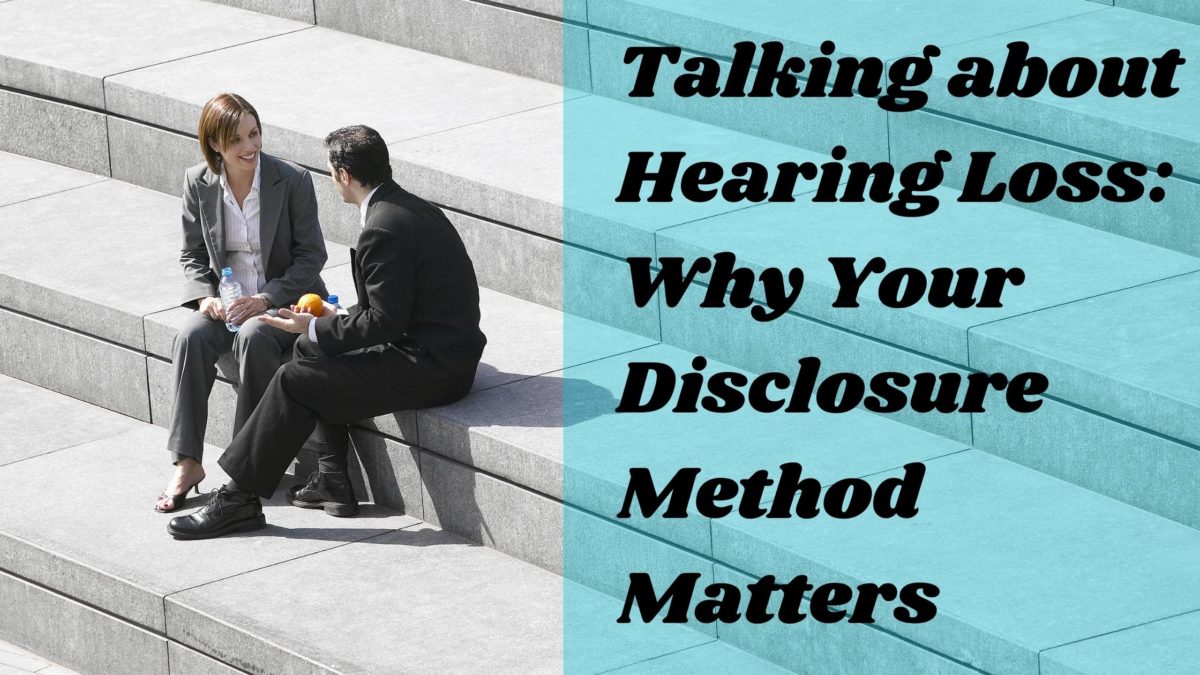Many of us find it difficult to talk about our problems. This hesitance comes in many forms and for many reasons. At the deepest level, some of us simply don’t acknowledge to ourselves that we have a problem. Although the issue might be hovering at the edge of our minds, we aren’t able to put this problem into clear terms for ourselves. Others of us know that we have a problem, but we find it hard to talk about.
The reason for this resistance can be quite personal and psychological, taking the form of some combination of pride and shame. Others simply don’t want to burden others and would rather fly beneath the radar. When it comes to the problem of hearing loss, these forms of resistance can prevent us from getting the help we need.
Disclosure of hearing comes in many shapes and sizes, so it’s important to find ways to communicate that help others respond. Let’s look at different ways to talk about hearing loss, including the benefits and weaknesses of each.
Non-Disclosure
Oddly enough, the first type of disclosure isn’t disclosure at all. Rather than telling others that we have hearing loss, we might rather simply instruct them on how to help. For instance, a person might not say directly that they have hearing loss, instead simply saying, “What was that?” “Come again?” or “Can you speak up?” These accommodation requests might make things easier in the short term of that individual conversation. However, the next time you talk with that person, you will likely go through the same process of requesting help. If you find yourself consistently asking others to repeat themselves, speak up, or stand closer when they talk, you might be missing a crucial piece of disclosure.
Partial Disclosure
Others take quite a different approach. Rather than requesting help in a conversation, they might simply let you know that they have hearing loss. Disclosing loss in this way is useful because people will know there is an ongoing condition to address. The next time you speak, others might recall that you have hearing loss. However, these people can feel at a loss for how to help. They might not take any measures, being unsure what can be done. They might make inappropriate attempts to help, such as speaking very slowly or overly enunciating their words. Without a request for specific help, this approach can be similarly ineffective in addressing hearing loss.
Full Disclosure
The complete package of hearing loss disclosure includes both of these pieces. A person who practices full disclosure will be sure to say that they have hearing loss, letting others know it is an ongoing issue and not a feature of this isolated incident. As well as disclosing hearing loss, they will also let others know what can be done to help. By explaining the practical steps others can take to help, solutions are on the way. These requests might be as simple as speaking a little louder or standing a little closer. Some people have specific requests, such as speaking into one ear rather than the other. The benefit of full disclosure is that the next time around, others can remember to follow these same helpful practices in the conversation.
Durable Solutions
Although these accommodations can help in the short-term case of one conversation or even the longer-term of future conversations, they can’t match the progression of hearing loss. Many people find that hearing loss gets worse with time and that the degenerative nature of hearing can make these accommodation strategies obsolete. What helped in the past might not do as well in the future. For this reason and many others, getting treatment for hearing loss is the only durable solution.
When you get treatment for hearing loss in the form of hearing aids, you will find yourself newly able to converse without needing to ask for specific help. Why not take your hearing ability into your own hands and pursue treatment? The first step is to schedule a hearing test, and this diagnostic exam will point you in the direction of the right kinds of aids for your individual needs. Make your appointment today!

